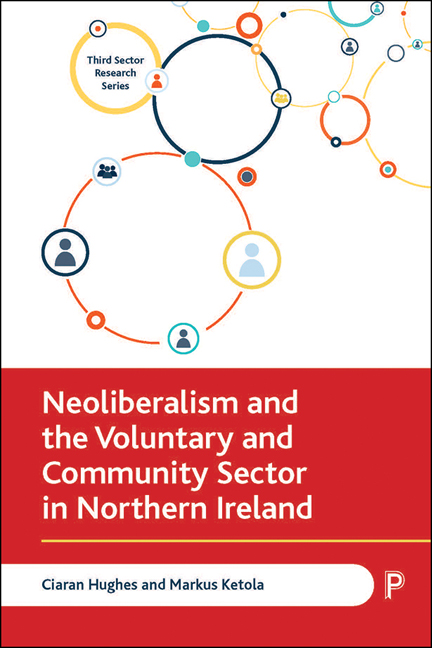Book contents
- Frontmatter
- Contents
- List of abbreviations
- Acknowledgements
- Series editor’s foreword
- one Introduction
- two Neoliberal enrolment? The ‘partnership turn’ in government rhetoric and policy
- three Getting connected: celebrating the value of connections and networks
- four Inside the networks: the rhetoric and the reality
- five Independence of voice, purpose and action
- six Conclusion
- Notes
- References
- Index
three - Getting connected: celebrating the value of connections and networks
Published online by Cambridge University Press: 30 April 2022
- Frontmatter
- Contents
- List of abbreviations
- Acknowledgements
- Series editor’s foreword
- one Introduction
- two Neoliberal enrolment? The ‘partnership turn’ in government rhetoric and policy
- three Getting connected: celebrating the value of connections and networks
- four Inside the networks: the rhetoric and the reality
- five Independence of voice, purpose and action
- six Conclusion
- Notes
- References
- Index
Summary
As the previous chapter suggested, at various times in the region's history, efforts have been made to ‘mainstream’ the role of the VCS in Northern Irish society and governance. This chapter maps out some of the networks, partnerships and spaces that emerged out of a succession of initiatives that sought to reimagine relationships within and between the VCS and government, and it explores interviewees’ experiences of participating in multi-actor networks, partnerships and processes of relationship building. In doing so, we explore how and why networks and partnerships come into existence, the politics and economics of partnership and relationship building, and the behaviours, dispositions, norms and values that create and sustain formal and informal partnerships, networks and relationships. We also sketch out the ways in which multi-actor networks continue to be an important part of the various strategies for managing the region's social and political divisions and the issues associated with its transition from conflict to relative peace. In this chapter, we will see how individuals operating in seemingly distinct spheres and sectors often describe networking, relationship building and partnership in similar ways, and how they often reach for the same phrases and concepts to describe networking practices and outcomes. As will become clear, the narratives put forward by many interviewees are strikingly similar to the orthodox and positive-sum narratives of multi-actor and multi-level partnership that have been put forward by UK governments, transnational institutions, voices from within the VCS, local administrators and some strands of scholarship. In later chapters, we will begin to critically unpack these more optimistic narratives.
The value of horizontal networks at the community level
As the data in this chapter will demonstrate, VCS organisations operate within a complex, contingent and changeable ecosystem that is made up of various and varied organisations, formal partnerships, contractual relationships and informal networks. Sitting alongside the wide range of locally based community development organisations (CDOs), there are sectoral service providers operating in a variety of thematic policy areas and at different geographical scales; a wider bureaucracy of infrastructural agencies and umbrella organisations that support the VCS as a whole or some of its thematic subsectors; grant-making agencies, foundations, partnership boards and quangos; formalised spaces for government–VCS interaction; and a complex web of formal and informal relationships involving the VCS, funders, consultants, the private sector and academic researchers.
- Type
- Chapter
- Information
- Publisher: Bristol University PressPrint publication year: 2021



